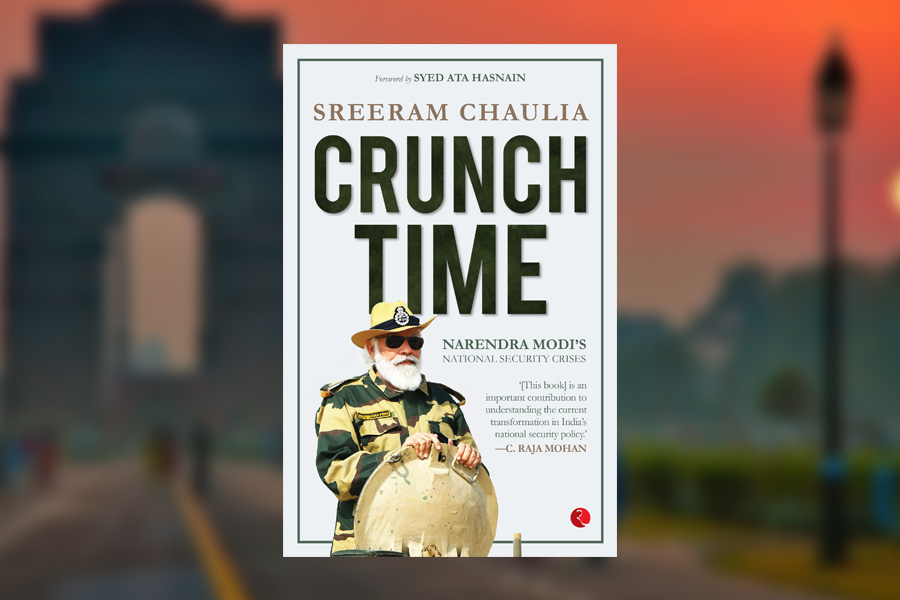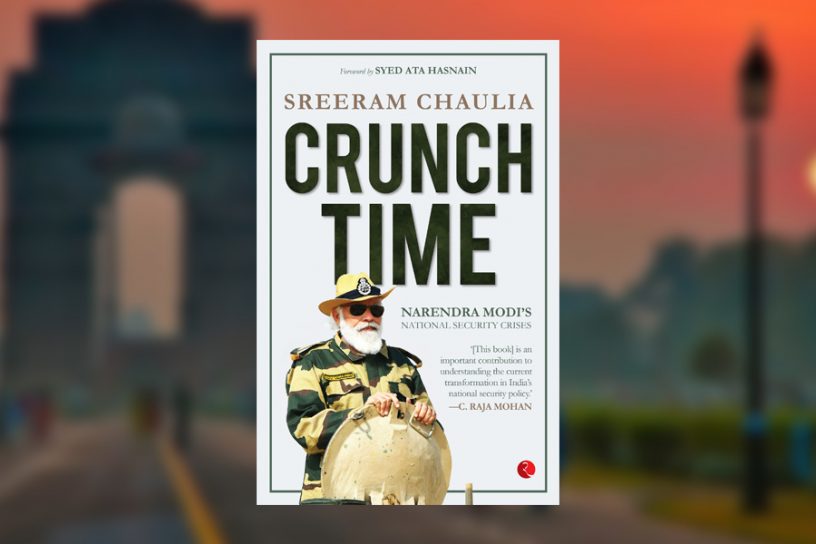
The consolidation of a strong centre under Prime Minister Narendra Modi has presented a unified face of India as a state and a nation to China and Pakistan, says Prof. Sreeram Chaulia of Jindal School of International Affairs whose new book, “Crunch Time”, details the paradigm shift in the country’s national security calculus since Modi assumed office in 2014.
Summary
India moving in a “centripetal direction”, as reaffirmed by the results of the just-concluded Assembly elections, is “bad news” for China and Pakistan as any provocation now would see them “incurring heavy costs”, says noted social scientist and opinion maker Sreeram Chaulia, whose new book, “Crunch Time”, details the paradigm shift in the country’s national security calculus since Prime Minister Narendra Modi assumed office in 2014.
Even so, India must “prepare for a more belligerent and aggressive” China in the wake of the Russia-Ukraine war, strengthen defenses all along the disputed border and in the Indo-Pacific, invest more in the defence sector and forge “stronger coalitions” with the Quad and Quad-plus countries, Chaulia, professor and dean at the Jindal School of International Affairs at the O.P. Jindal Global University, told IANS in an interview.
At the same time, Pakistan “does not pose any existential threat to India”. The Modi government’s attempts to keep the Line of Control (LOC) “quiet” to focus on the Line of Actual Control (LAC) with China “ironically” could “bring about a tactical thaw for India with Pakistan”, even though “breaking the Sino-Pakistani strategic collusion is no easy task”, Chaulia maintained.
Central governments in India, before Modi’s prime ministership, “were hobbled in their approach to national security due to their internal weakness. Coalitions involving a motley group of political parties, excessive bargaining and blackmail by partners from regional parties at the state level, identity politics that divided India into a patchwork of ethnic, caste and religious groups, and national leaders lacking in political gravitas — all these features had crippled central governments badly prior to 2014”.
“This translated into ineffective and cowardly responses when India’s security was threatened by external adversaries. The consolidation of a strong centre under Modi has thrown out this paradigm and presented a unified face of India as a state and a nation to China and Pakistan.
“The recent Assembly election results in Uttar Pradesh and other states confirm the trend of India moving in a centripetal direction, which is bad news for China and Pakistan. Provoking Modi’s India means incurring heavy costs for our two external adversaries now,” Chaulia asserted.
Sub-titled “Narendra Modi’s National Security Crises”, the book is published by Rupa.
What are the implications for India of the Russia-Ukraine war?
Noting that the war “has thrown a wrench into the strategies of all powers”, Chaulia said India did not want the US and its European partners to get embroiled in a prolonged confrontation with Russia “that would distract from the clear and present dangers posed by China in Asia”.
Also, the shift in thinking in Washington and Brussels that Russia is the main threat and that the “new Cold War” is between Russia and the West “is not at all beneficial to India”, he said.
Moreover, the way in which Russia attacked Ukraine “will embolden China to attempt more browbeating, if not outright invasion, of Taiwan and smaller adversaries in Southeast Asia, such as the Philippines and Vietnam. So, we have to prepare for a more belligerent and aggressive China now and strengthen defenses all along our disputed borders, as well as in the maritime domain of the Indo-Pacific”, Chaulia contended.
Pointing to how the Modi government pushed back at Beijing’s expansionism through the doctrines of “security first” and “offensive defence”, he added: “Going forward, investing more in India’s defence and forging stronger coalitions with QUAD and QUAD-plus countries is the only way to face the Chinese menace.”
How does he see the India-Pakistan situation panning out?
Contending that China has replaced Pakistan as the “principal threat” to India’s rise as a leading power in the world, Chaulia said that while Pakistan “can plot terrorist attacks against India”, it is “significantly weakened due to economic failure and internal fissures”.
“Pakistan does not pose any existential threat to India. Pakistan’s role is to act as a proxy or junior partner of China to keep India hemmed in within the subcontinent. Realising that the China-Pakistan axis could produce a “two front war’ problem, the Modi government has attempted to extend ceasefires with Pakistan and keep the Line of Control quiet so that India can divert and concentrate all its forces on the LAC,” Chaulia said.
“So, ironically, the enhanced Chinese threat could bring about a tactical thaw for India with Pakistan. At least, this is the hope. But as readers will learn from my book, the mainstreaming of jihadist culture in Pakistan means that whatever effort Modi has made for peace, or at least a thaw, with Pakistan has not worked out. Breaking the Sino-Pakistani strategic collusion is no easy task,” he added.
Published in: IANS Live
To read the full interview, please click here.


